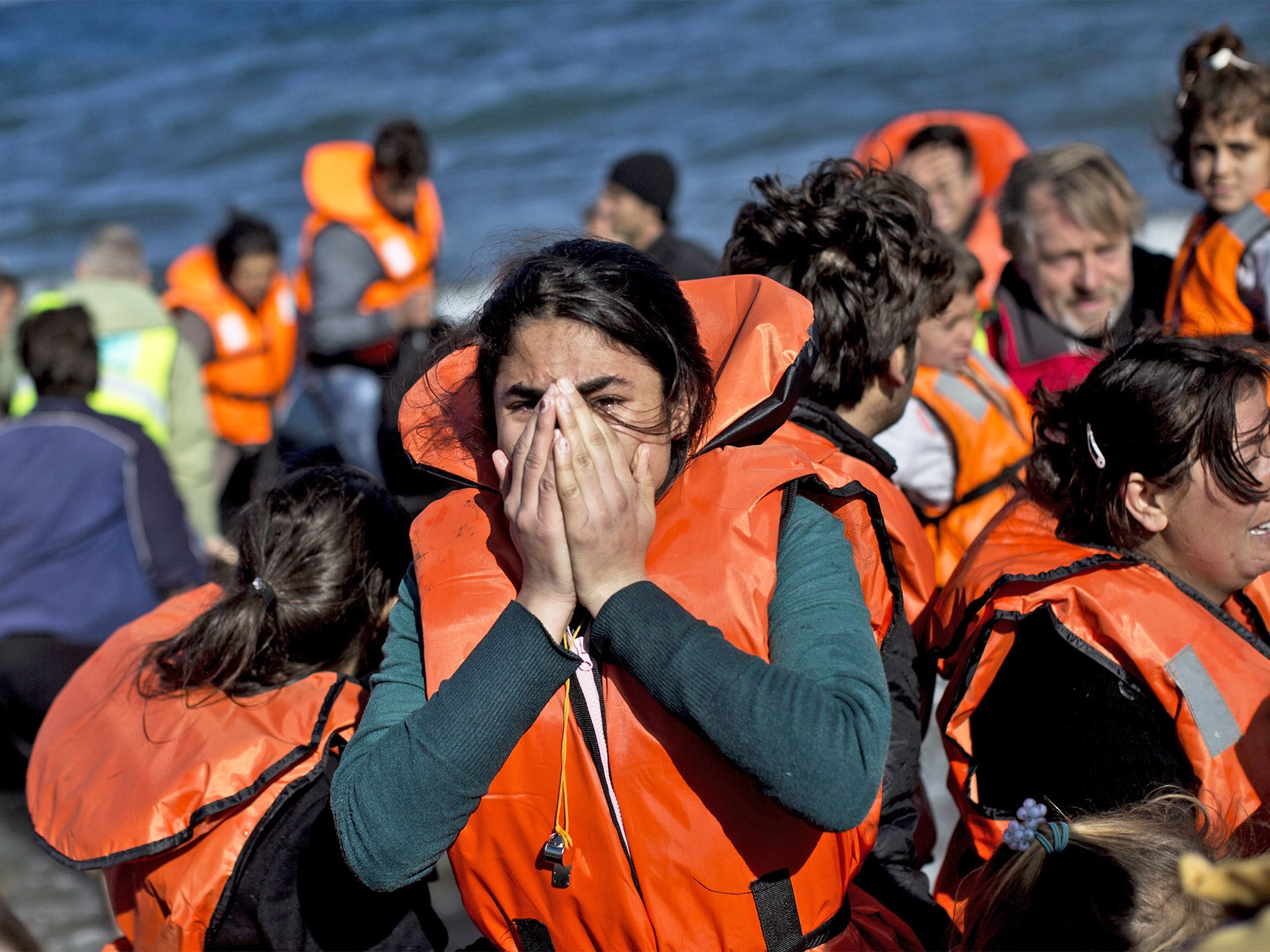Refugee crisis: At least eleven drown after boats capsize near Lesbos
Greek authorities rescue 242 people but further casualties feared after ‘day of death’

Your support helps us to tell the story
From reproductive rights to climate change to Big Tech, The Independent is on the ground when the story is developing. Whether it's investigating the financials of Elon Musk's pro-Trump PAC or producing our latest documentary, 'The A Word', which shines a light on the American women fighting for reproductive rights, we know how important it is to parse out the facts from the messaging.
At such a critical moment in US history, we need reporters on the ground. Your donation allows us to keep sending journalists to speak to both sides of the story.
The Independent is trusted by Americans across the entire political spectrum. And unlike many other quality news outlets, we choose not to lock Americans out of our reporting and analysis with paywalls. We believe quality journalism should be available to everyone, paid for by those who can afford it.
Your support makes all the difference.At least 11 people, including several children, have drowned after a large refugee boat capsized and several smaller boats were swamped, as the worsening weather made the sea crossing from Turkey to Greece more perilous than ever.
On what one volunteer described as a “day of death”, there were fears that dozens more people may have lost their lives in the sinking of a wooden boat in rough waters near the island of Lesbos.
It was unclear how many people had been on board, but the International Organisation for Migration said it had received reports that there could have been as many as 300. The Greek coastguard said it had rescued 242 people but confirmed that at least three had drowned.
“We do not have a picture of how many people may be missing yet,” a coastguard spokeswoman said.
In another sinking off Lesbos, a seven-year-old boy drowned and a 12-month-old girl was in a critical condition in hospital. Two children and a man also died off the island of Samos, while 51 people on the same boat were rescued. In another incident off Samos, a five-year-old girl was drowned.
The Associated Press said the total death toll was at least 11 after five separate sinkings in the eastern Aegean Sea. Trace Myers, a volunteer in Lesbos with the charity Refugees Start, wrote on Facebook: “Today is a day of death. Members of this team have worked relentlessly to give CPR, support grieving people and have watched life pass from children’s eyes.
“A woman lost her baby and her husband, another woman saw her three- or four-year-old child die and her other child rushed to hospital.”
Ms Myers, who is also working with Starfish, a group set up by a Lesbos restaurant owner to help refugees, said there had been a massive queue of rescued people – “everyone soaked, freezing and traumatised”.
And she added: “There are hundreds of people currently in the sea. Swimmers and the coastguard are out. These people need help, Greece needs help and we need volunteers now.”
She said it was an “outrage” that nation states were not doing more to help the refugees, saying it was “beyond comprehension” that governments would allow such suffering.
“They are responsible as long as safe routes of travel are denied,” Ms Myers wrote. “We have to take responsibility to hold them to account.”
What we don’t need in the wake of this tragedy is another ‘extraordinary’ meeting that leads to a dead end
Lesbos, which lies less than six miles from the Turkish coast in the north Aegean Sea, has been a primary gateway for thousands of refugees and migrants entering the European Union’s outermost border this year.
Well over half a million refugees, fleeing war, violence and extreme poverty, have arrived in Greece so far this year in what has become the biggest humanitarian crisis on the continent in decades.
At a summit last Sunday, EU leaders agreed to co-operate further in handling the crisis and to provide United Nations-aided housing for 100,000 people, half of them in Greece.
Aid organisations said that barely addressed the problem of ensuring safe and legal routes for people to seek refuge.
“What we don’t need in the wake of this tragedy is another ‘extraordinary’ meeting that leads to a dead end. What would be truly out of the ordinary – but completely necessary – is real and concerted action,” said Gauri van Gulik, Amnesty International’s deputy director for Europe.
Join our commenting forum
Join thought-provoking conversations, follow other Independent readers and see their replies
Comments